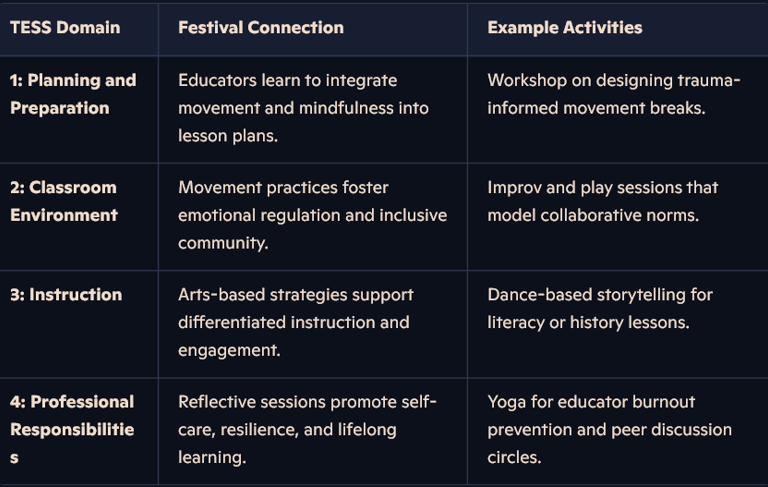How FMF Supports Educators in the Classroom
The Fayetteville Movement Festival offers a rich, interdisciplinary experience that supports educators in the classroom by integrating movement, creativity, and emotional wellness into teaching practices.
1. Embodied Learning & Regulation
•Classes in yoga, dance, and functional movement help educators explore somatic tools for self-regulation and classroom management.
•Techniques learned can be adapted for student use, promoting emotional resilience and focus.


2. Creative Pedagogy
•Improvisation and play-based workshops foster creativity, spontaneity, and collaboration—skills essential for student engagement and inclusive teaching.
•Educators gain strategies to integrate movement and arts into core subjects, supporting diverse learning styles.


3. Community Healing & Trauma-Informed Practice
•The festival emphasizes community healing and resilience, offering educators insight into trauma-informed approaches that nurture safe, supportive learning environments.
•Sessions often include deep relaxation and mindfulness, which educators can model and teach.


4. Collaboration & Peer Learning
•The festival creates space for interdisciplinary collaboration, allowing educators to connect with artists, therapists, and movement specialists.
•These connections can inspire new classroom projects, partnerships, or curriculum ideas.


5. Equity & Accessibility
•With beginner-accessible classes and a “no one turned away for lack of funds” policy, the festival models inclusive practices that educators can replicate in their own settings.


6. TESS Alignment
Arkansas uses the TESS (Teacher Excellence and Support System), which includes ten domains based on Charlotte Danielson’s Framework for Teaching. Here’s how FMF aligns.



